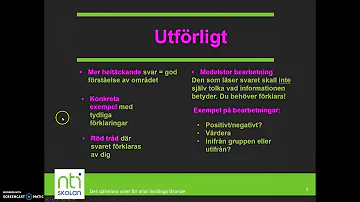What is John Dewey's theory of learning?
Innehållsförteckning
- What is John Dewey's theory of learning?
- What is the name of Dewey's theory?
- How is Dewey's theory used in the classroom?
- What is John Dewey known for?
- What is the meaning of Dewey?
- How is Perennialism applied in the classroom?
- What is another word for dewy?
- What does dewy hillside mean?
- What do you teach Perennialism in education?
- What are the teaching methods of perennialism?
- What is John Dewey's theory of learning?
- What is John Dewey's theory of pragmatism?
- What is progressive education according to John Dewey?
- Is John Dewey's interpretation of experiential learning epistemologically problematic?

What is John Dewey's theory of learning?
Put briefly, Dewey believed that learning was socially constructed, and that brain-based pedagogy (not his words) should place children, rather than curriculum and institutions, at its center. Effective learning required students to use previous (and prevailing) experiences to create new meaning–that is, to 'learn.
What is the name of Dewey's theory?
John Dewey was a leading proponent of the American school of thought known as pragmatism, a view that rejected the dualistic epistemology and metaphysics of modern philosophy in favor of a naturalistic approach that viewed knowledge as arising from an active adaptation of the human organism to its environment.
How is Dewey's theory used in the classroom?
Dewey believed teachers should never pressure students to conform. Instead of going into a classroom with certain expectations, accept students of all different cultures, religions and family backgrounds. Within individual school regulations, respect students who wear different or unusual attire.
What is John Dewey known for?
John Dewey was an American philosopher and educator who was a founder of the philosophical movement known as pragmatism, a pioneer in functional psychology, and a leader of the progressive movement in education in the United States.
What is the meaning of Dewey?
The name Dewey is primarily a male name of Welsh origin that means Beloved. An Anglocized version of the Welsh name Dewi and a form of the name David. "Dewey Decimal System" is a system to organize books in a library, invented by Melvil Dewey in 1876.
How is Perennialism applied in the classroom?
A perennialist classroom aims to be a closely organized and well-disciplined environment, which develops in students a lifelong quest for the truth. ... For example, reading, writing, speaking, and listening are emphasized in the early grades to prepare students in later grades to study literature, history, and philosophy.
What is another word for dewy?
What is another word for dewy?
| damp | moist |
|---|---|
| sultry | soaked |
| drenched | sodden |
| saturated | waterlogged |
| sopping | soaking |
What does dewy hillside mean?
Something that's dewy is slightly damp, or beaded with moisture. The dewy grass early in the morning might leave wet marks on your sneakers. ... The ground, leaves, blades of grass, and even your car might be dewy on a cool spring morning.
What do you teach Perennialism in education?
Perennialists believe that the focus of education should be the ideas that have lasted over centuries. They believe the ideas are as relevant and meaningful today as when they were written. They recommend that students learn from reading and analyzing the works by history's finest thinkers and writers.
What are the teaching methods of perennialism?
CURRICULUM Perennialists believe that reading is to be supplemented with mutual investigations (between the teacher and the student) and minimally- directed discussions through the Socratic method in order to develop a historically oriented understanding of concepts.
What is John Dewey's theory of learning?
- According to the John Dewey theory, people learn best through a hands-on approach. As a result, the philosophies and views of John Dewey are placed in the educational philosophy of pragmatism. John Dewey Theory of learning by doing
What is John Dewey's theory of pragmatism?
- According to the John Dewey theory, people learn best through a hands-on approach. As a result, the philosophies and views of John Dewey are placed in the educational philosophy of pragmatism. John Dewey and other pragmatists are convinced that students or other persons who are learning must experience reality as it is.
What is progressive education according to John Dewey?
- Progressive education in essence is a vision of education that emphasises the necessity of learning by doing. According to the John Dewey theory, people learn best through a hands-on approach. As a result, the philosophies and views of John Dewey are placed in the educational philosophy of pragmatism.
Is John Dewey's interpretation of experiential learning epistemologically problematic?
- Kolb's interpretation of John Dewey's ideas is compared to Dewey's concepts of reflective thought and action. It is concluded that Kolb gives an inadequate interpretation of Dewey's thought and that the very concept of immediate, concrete experience proposed by the experiential learning approach is epistemologically problematic.















